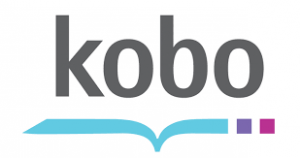PUBLISHED DECEMBER 2017
by Zsofia Macho, Writer --
Watch Joshua Robertson's video recap of this article!

Zsofia Macho
It is not easy to become an internationally recognized self-published author, but it is definitely not impossible.
There is a rule every aspiring international writer is told early on: Learn English. Read in English. Write in English. Breathe in English.
It seems cruel and unfair, but that doesn’t make it any less true: English is the primary or official language in 67 countries worldwide and is estimated to be spoken by at least 1.5 billion people either as a primary or a secondary language. This is a giant market, hungry for easy-to-access and relevant English language content. You can write and self-publish happily in English and you will reach a huge share of the book market.
Let us not forget, however, about the other big (or small) languages: according to the
Global E-book Report, the US and the UK together are only 29 percent of the global e-book market. The other 71 percent is divided by China, Germany, Japan, France, and the rest of the world.
While translating self-published books used to be out of the question even 15 years ago, much has changed in the last couple of years. It is still not easy to become an internationally recognized self-published author, but it is definitely not impossible.
This article will share six tips every indie author setting out to conquer the world should know—both those writing and marketing exclusively in English and those working with a translator and aiming for foreign language markets. Due to lack of space, we will not talk about foreign rights agents and contracts, only self-publishing.
1. Only target one market a time
Don’t fall into the pitfall of wanting too much at once; you have to build up your reputation step by step in each country. Just like big companies do: they are researching the market for years before deciding to open a shop. You won’t need years, but a little planning won’t hurt.
Once you are established in your home country (or in your main market), it is time for you to start looking into several directions. If you are writing in English, consider checking the other big English language markets first: Australia, India, and Canada.
Research the market thoroughly. Some markets are more open for nonfiction, others are all for religious books or women’s fiction. Find out which books are leading the bestseller lists. Who are the most popular writers of your subgenre, and what are they writing about? Is there something you can bring to this market that hasn’t been there before?
2. Start with the biggies, but don’t forget the little ones
Luckily for you, all big booksellers are expanding to foreign markets, making it easier for you to sell your books. In addition to Amazon and Google, which are opening up new stores at a fast speed, Apple and
Kobo are also selling literally everywhere—the latter teaming up with local stores in 190 countries.

Once you are already on
Amazon.com, it is easy to start selling your books on
Amazon.de or
Amazon.in—just remember to create an author page in every language you are selling on. With Kobo, you can also easily select the countries you would like to be sold in and set the price for each country separately. When you do your market research, make sure to check out the local stores as well, especially if you are planning to get your books translated.
While the big bookstores may have the biggest market share in the UK and US market, this might not be so for other countries. In France, for example, Amazon only has a 40 percent share of the market, and there are three major sales platforms (
Numilog,
Eden Livres and E-Plateforme) working together to take the rest of it.
While it would be the best to sign up everywhere, it is extremely difficult to manage several separate accounts, follow up sales and invoices, and make sure that you don’t accidentally violate any law or regulation. (Or not try to sell your book in a shop directly where you already sell it through Kobo.)
3. Check your rights, prices, and taxes
Whether you are a self-published or a traditionally published author, if you have sold any books, you have given away rights. Remember to check with your publisher or self-publishing service provider whether you gave your international rights away, and if you did, how you can get them back. If you are just about to sign a contract or sign up to a service provider, make sure you read the fine print about international rights.
When it comes to pricing, you are also in a challenging situation: You can’t just use the current foreign exchange rate to determine the price of your book in a foreign currency. The amount of people who are happy to pay for a book is different in each and every country, and this is not independent of the purchasing parity of the currency. You can use certain guides, such as the Big Mac index, to help you in pricing, but you are also recommended to just go and check it out for yourself.
Also, look out for local regulations that might affect your pricing decision; for example, in France, retailers can’t change the price given by the publisher.
I know these are the nasty bits nobody wants to hear about, but also make sure to check the rules of receiving foreign income in your home country. In some cases, it can affect your tax rate.
4. Find the right translator
It’s not necessary to translate your books, as you can sell globally, but if you are considering translation, then it's important to find
the right translator. The translator has a double duty: They have to convey not only the message of your book but also transmit culture and the soul of your writing. Without the right translator, your carefully chosen words are all for nothing.
If you don’t speak the language, you have no way of checking if they did a good job. So, what can you do? Believe it or not, there are some people out there who might translate your book for free. Aspiring translators are easy to find if you join a Facebook group for international writers.
You can also try a translation service company like
BabelCube: The translators here work for a share of royalties, so they are interested in your success. Apart from offering translation services, BabelCube also distributes the translated books.
But the safest way is to hire a translator, and there are millions of places where you can find one. Remember to also look for an editor: There is always a need for a second pair of eyes so you end up with a quality product.
Don’t rush finding the right translator. You can exchange emails with multiple people and find the one you feel most comfortable working with. Apart from translating your books into a foreign language, a translator can offer valuable insight into their culture and help with marketing and distribution. Even if you get close, however, remember to fill out a contract, stating not only payment but also the rights of the book translated.
5. Get marketing

Don’t expect sales to come in as soon as your book appears in stores. You have to work on building your reputation (starting almost from zero) and get the word out about your book.
If you are writing for the English language market, you can use approximately the same strategies you are using in your home market. It’ll also help that people can see reviews of your book from the UK store in the US and vice versa. Bear in mind, though, that it doesn’t work in the other stores.
Try using one of Amazon’s discounting or giveaway services at the beginning to boost your launch day sales and get some reviews under your books.
Remember, that there is no silver bullet; people in different countries can react to the same thing very differently. Try to find the right Facebook groups where you can make useful contacts and some friends in the target country who can help you with advertising.
If you try doing your marketing without the help of someone who speaks the language or understands country-specific behavior, things might turn bad. It can help if your translator knows something about the book market in the target country and can help you find your way around.
For translating short texts, such as blurbs, reviews, and marketing material, you can hire translators from
Fiverr. You can also use Google Translate (or your browser’s built in website translate) to communicate with your fans in their own language. Even if you don’t get the grammar right, they’ll appreciate it.
6. Create an Author Central page
Amazon is a great place to sell and market your books. The Author Central pages work like a private website without all the website-building pain. They provide authors with a great platform to share pictures, a blog feed, and up-to-date information on new books and other content. You can create your Author Central page by using the same login as you would use as a customer.
A lesser-known fact, however, is that Author Central pages are not international; you have to log in on each of the regional Amazon sites having this service (currently UK, US, Germany, France, and Japan) and type in your information. Don’t worry if you don’t speak either of these languages; the layout of the web pages is the same, so you just have to open you original UK or US page and copy and paste the information into the right boxes.
So, what are you waiting for? Go and find yourself an amazing translator, because achieving international success might be easier than you think. Happy publishing!
Zsofia Macho is a bookish person: she writes, edits, translates, and proofreads books and articles. She also likes to read them. Currently finishing a linguist MSc at University College London, she has a tough time displaying scientific journals on a traditional Kindle. When she is not writing for PublishDrive, she spends her time playing co-operative board games or badminton. A version of this article was originally published on the website The Creative Penn (thecreativepenn.com).